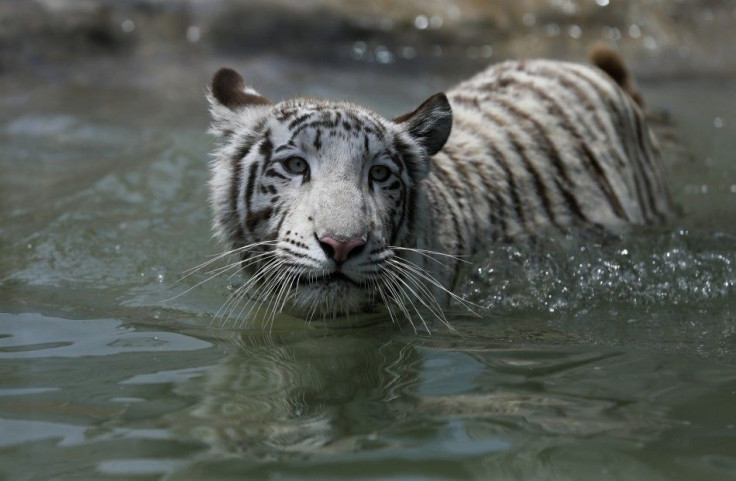Siberian Tiger Hani Dead in Greater Vancouver Zoo

Siberian Tiger Hani, one of the two sisters in the Greater Vancouver Zoo, was found dead.
The keepers at the zoo found the dead tigress that was bought along with its sister in 2012. According to the general manager of the zoo, Jody Henderson, Hani seemed healthy, but she became lethargic. She started behaving abnormally while she stopped eating on Wednesday, April 30. Mr Henderson said that all staff and volunteers at the zoo were "devastated" by the sudden death of Hani. The vet was expected to come for having a complete examination of Hani. He also said that they were hopeful that the full necropsy, which would be performed later on Thursday, May 1, would "provide some answers" of the cause of death.
CBC News reported that both Hani and Hana, her sister, were born at Seoul Zoo in South Korea on May 22, 2011. Hani was the smaller of the two sisters. Henderson said that Hani's demeanour was quieter than her sister. Hani, unlike Hana, preferred staying alone, while her sister happens to be outgoing. Hani was the second Siberian tiger to die at the Greater Vancouver Zoo in the last four months. Hani was expected to celebrate her third birthday within days. Henderson said that the news of Hani's death was devastating as she was too young to die. Even though death is never easy at any age, the death of the young is even more painful, he said.
The other Siberian tiger that died at the zoo was Sweetie, which was euthanised on Dec 31, 2013. She suffered from breathing problems as well as lethargy and loss of appetite. According to Henderson, the average life expectancy of a Siberian tiger is 14 years. There are around 500 Siberian tigers left around the world. They are found in China, North Korea and eastern Russia.
According to WWF, there are as few as 3,200 tigers left in the world. There have been several campaigns urging to save the "endangered" big cat species all over the world. Tigers, considered to be one of the most exotic animals in the history, suffered illegal poaching, climate change and human-wildlife conflict throughout the decades.





















